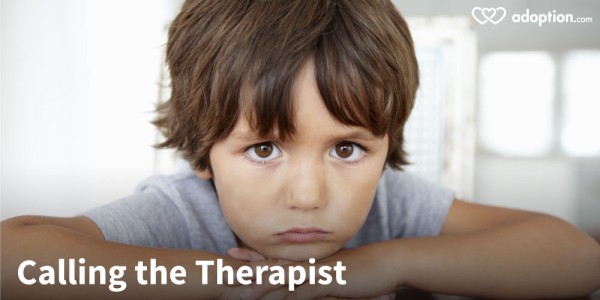My son and I were driving home on the expressway, and tears were running down my cheeks. This was not the first time I had cried over this child, but these tears were different. Instead of tears of anger or frustration or fear, these were tears of relief. I never knew quite how strongly the burden of this boy was weighing on my shoulders until the burden was lifted slightly.
To understand, you must travel back in time with me six years before that drive home on the expressway, all the way to Vietnam. My husband and I were there to adopt our new son. He would be our sixth child, and we were very excited. . . and nervous. On the face of it, everything was working out well. Our extended family and children were excited and supportive. We had done as much research and preparation as we could possibly do. You name the book on adoption and toddlers and attachment, and I had probably read it. We knew it might be hard at first, but we were ready for that.
If I could sum up our first adoption experience in one word, it would be humbling. The adoption of this new son would cause me to rethink everything I knew about myself and my abilities as a parent. His arrival turned my family’s world upside down. In sharing this story, I’ve had some people raise an eyebrow and wonder how a little 3-year-old could do such a thing. He’s just a little child, after all. Size doesn’t really matter; time bombs don’t take up much space, either. And that is what it felt as though we were living with: a ticking time bomb that would explode at random intervals. We just didn’t know when.
When we first received him in-country, we dealt with rages of a magnitude I wouldn’t have believed if I hadn’t witnessed them. As we got to know each other, the frequency of the rages abated somewhat, but they were always present in the background. We would never know what would set one off. Life would be going along quite well, in our opinions, and suddenly, for no apparent reason, we would be in the middle of yet another episode. The rages were the most blatant behavior, but we also were navigating other negative behavior that was difficult to really admit was there.
We went on like this for years. We were trying our best, yet it did not seem to make much of a difference. I would perpetually find myself thinking, “I think he’s getting better. I think we’re making progress,” which would feel true until the next crisis came. I read more books; I tried different vitamin supplements; I tried every trick I could find to make his behavior more manageable. And always, “I think it’s getting better. I really do.”
Well, I was wrong. My son was not getting better. Sure, we had moments where life was peaceful, but we never knew how long they would last. Life wasn’t horrible, but we were constantly on-guard. My husband and I hadn’t been away without the children for years because we knew we couldn’t leave our son yet. If we just tried just a little harder. . .
Then finally, on a trip to China to adopt our daughter, we had behavior one morning that we weren’t expecting. It overwhelmed us (and our son). It was horrible and I knew that things weren’t getting better. Actually, I’m pretty sure I had known that for a very long time, but just couldn’t admit it to myself. I was suddenly very afraid for my son’s future. When we arrived back home, I did some cursory research (it was all I could emotionally manage) and I made a call to a therapist specializing in attachment and adoption. I felt like a failure, but I knew we couldn’t go on. If I didn’t make the phone call, I would be failing my son in a much bigger way.
I had no idea what to expect at the first appointment. We chatted and got to know one another. I filled out a multi-page questionnaire about my son’s behavior. We talked a little about his and our family histories. And then we left.
It was a completely uneventful visit and nothing had changed; there was no magical, quick fix. What caused my tears? My husband and I were no longer alone in this fight to help my son heal from his past trauma. The responsibility did not just lie with us. We had someone else on our side. There was also something else. I had shared everything with the therapist—even the stuff that I had never told anyone else. The stuff that felt shameful and embarrassing. And she supported me. She didn’t tell me that it wasn’t that bad. She didn’t tell me that I should have done more. She didn’t tell me I was a bad mother. She didn’t act surprised. Instead, she offered sympathy and understanding. She acknowledged that my son had some difficult behaviors and that it must be difficult to live that way. She offered me hope.
Hope is a valuable commodity. We have been seeing a therapist for over two years now, and this time, things really are better. I wish I would have been brave enough to make that phone call years earlier. Asking for help can be difficult, especially when asking for that help feels as though you have failed, but that phone call made all the difference for us. It gave us tools to use to help him feel safe. It gave our son tools to use to start understanding himself. We get to watch a child who was scared, angry, withdrawn, and anxious, transform into a boy who is learning to relax, express emotion, and laugh.
If you can relate to his, make the call. Even if you cry while you do, you’ll be glad you did.

